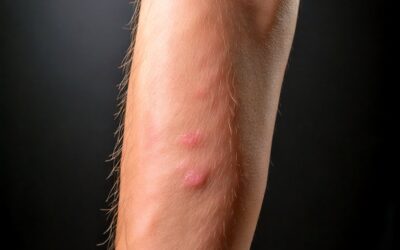At Access Allergy, Asthma, and Immunology we understand how overwhelming it can be for parents – especially mothers – to care for a child with food allergies. The fear of an allergic reaction, combined with the challenges of managing a child’s diet, can feel daunting. That’s why we’re here to help you understand the basics of food allergy treatment, empowering you to keep your child safe and healthy.
What is a Food Allergy?
A food allergy occurs when the immune system mistakenly identifies a specific food as harmful and reacts against it. This reaction can range from mild to severe and may include:
- Hives or rashes
- Swelling, especially around the face or mouth
- Digestive issues like nausea or vomiting
- Difficulty breathing or wheezing
- In severe cases, anaphylaxis – a life-threatening reaction that requires immediate medical attention
Common allergens include peanuts, tree nuts, milk, eggs, soy, wheat, fish, and shellfish, but any food can potentially trigger an allergy.
Diagnosing Food Allergies
The first step in treating a food allergy is getting an accurate diagnosis. We use a combination of tools to determine whether your child has a food allergy, including:
- Detailed Medical History to understand past reactions and potential triggers.
- Skin Prick Tests applying a small amount of the suspected allergen to the skin to observe reactions.
- Blood Testing to measure the presence of allergen-specific antibodies in the blood.
- Oral Food Challenges using small amounts of the suspected food to confirm or rule out an allergy.
Food Allergy Treatment Basics
While there’s no cure for food allergies, proper management can help you keep your child safe and significantly reduce the risk of a reaction. Here’s how:
Avoid the Allergen
Once an allergen is identified, the primary treatment is strict avoidance. This includes:
- Reading food labels carefully to identify hidden allergens.
- Teaching your child and caregivers about safe and unsafe foods.
- Avoiding cross-contamination in the kitchen, such as using separate utensils and cutting boards.
Emergency Preparedness
For children with food allergies, being prepared for an accidental exposure is crucial. We’ll help you create an allergy action plan, which typically includes:
Keep Access Allergy, Asthma, and Immunology Saved in Your Mobile Phones
Keep our clinic contact information saved in your phone for quick access. This will save valuable time when you need to make contact. In case of an emergency always call 911 first.
Epinephrine Auto-Injector
A life-saving device that delivers adrenaline to counteract severe reactions like anaphylaxis. Parents, caregivers, and teachers should all be trained on how to use it.
Antihistamines
Used to manage mild reactions like hives or itching.
Clear Instructions
Clear instructions are vital to planning. Be certain regarding when and how to seek emergency care.
Education and Advocacy
Helping your child understand their allergy is a vital part of treatment. Teach them how to:
- Recognize symptoms of an allergic reaction.
- Politely decline unsafe foods.
- Inform an adult immediately if they suspect a reaction.
As a parent, you’ll also need to advocate for your child at school, daycare, or extracurricular activities by sharing their allergy action plan with staff and ensuring the environment is safe.
The Role of Immunotherapy in Food Allergy Treatment
For some children, oral immunotherapy (OIT) may be an option. This treatment involves gradually introducing small, controlled amounts of the allergen to desensitize the immune system. While not a cure, it can help reduce the severity of reactions in case of accidental exposure.
At Access Allergy, Asthma, and Immunology we’ll evaluate whether immunotherapy is a suitable option for your child and guide you through the process if it is.
Emotional Support for Parents and Children
Caring for a child with food allergies can feel isolating or stressful, but you’re not alone. We understand the emotional toll and are here to provide guidance and support. We also encourage connecting with local or online food allergy support groups to share experiences and tips with other parents.
Why Choose Access Allergy, Asthma, and Immunology?
We specialize in personalized, compassionate care for families managing food allergies. Our team will work closely with you to:
- Identify your child’s specific allergens.
- Create a comprehensive treatment and action plan.
- Educate your family on managing allergies in daily life.
Our goal is to help your child live a safe, healthy, and confident life—free from the fear of food allergies.
Take the First Step Today
If you suspect your child has a food allergy or need help managing an existing diagnosis, contact Access Allergy, Asthma, and Immunology today. Together, we’ll create a plan that works for your family and gives you peace of mind. Let us help you take the first step toward effective food allergy treatment and a healthier future for your child.




0 Comments